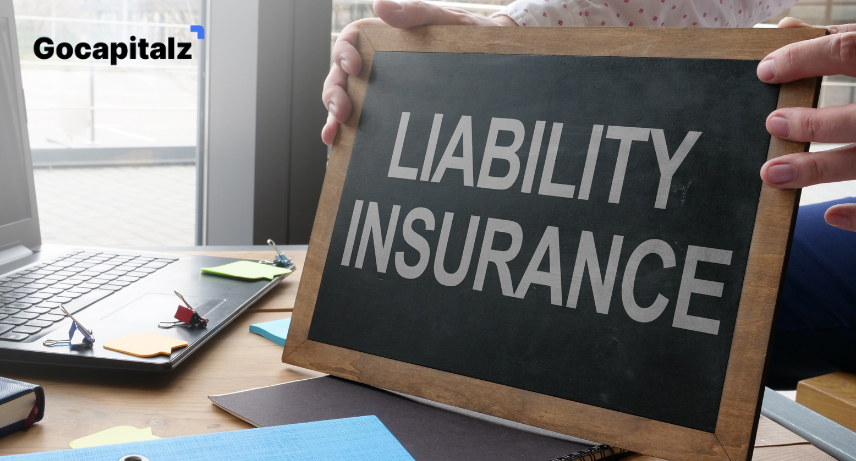Car Insurance Guide: Policies, Coverage & Top Companies

This Car insurance is a vital financial protection system that helps drivers cover the costs of vehicle accident-related losses and theft incidents with damage. Knowledge about different types of automobile policies, coverage options, and leading auto insurance companies enhances the process of selecting an optimal insurance plan. A complete analysis explores both car insurance fundamentals and its various types of coverage, while ranking current insurance providers in the market.
What is Car Insurance?
The vehicle owner enters into an insurance agreement with a provider to receive financial protection in the event of an accident, damage, or liability. Through a car insurance policy, a person maintains protection against having to pay full vehicle repair costs and third-party expenses with their own funds. Insurance policies establish different levels of protection through their terms and specify rates for premiums.
Types of Car Insurance Policies
The choice of insurance policy depends on what specific coverages an individual wants, along with their exposure to potential risks and the state’s mandatory guidelines. There exist three main categories of car insurance policies:
Comprehensive Car Insurance
Car insurance policies cover costs from third-party liabilities, in addition to protecting the insured person’s vehicle from damage. The insurance protects against accidental losses, theft incidents, natural disasters, fire incidents, and criminal damage. The policy suits anyone who needs full financial protection for their automobile.
Third-Party Insurance
Motor vehicle legislation in most countries requires drivers to maintain third-party insurance. Under this type of coverage, you are protected from the costs of harm inflicted on another party or their vehicle or possessions. This insurance policy does not cover any losses that affect the vehicle; it covers.
Full Coverage Car Insurance
The comprehensive form of insurance includes liability coverage combined with comprehensive and collision options. A maximum level of financial security is guaranteed through coverage that protects against car damage from accidents, as well as theft and natural disasters.
Collision Insurance
The insured vehicle receives coverage when it suffers damages after a collision with another car or physical object under this policy. The policy is best for automobile owners who own valuable vehicles and want to avoid paying for repairs out of their own pockets.
Usage-Based Car Insurance
Insurance policies provided by some companies determine premiums through monitoring driver conduct. The premium amount depends on an analysis of mileage, driver speed, and braking habits. Drivers who want to reduce their expenditure on auto insurance and have a good driving record should consider this insurance plan.
Coverage Options in Car Insurance
Understanding coverage options enables people to choose the best car insurance policy for themselves. Several standard coverage options are available in car insurance plans, under which insurance companies operate.
Liability Coverage
Bodily injury, together with property damage, belongs to the group of protection provided under liability coverage. The insurance policy pays for medical treatments, lost wage compensation, and legal expenses, which may occur after an accident where the policyholder is found to be responsible.
Personal Injury Protection (PIP)
Health costs from motor vehicle incidents are fully covered under PIP, both for policyholders and their car passengers, even if someone other than the insured was at fault for the incident. Under PIP insurance, the coverage extends to cover personal income losses and treatment expenses for recovery from injuries.
Uninsured/Underinsured Motorist Coverage
The insurance policy helps safeguard policyholders when they are involved in accidents with unidentified drivers who do not carry insurance or have insufficient coverage. This form of coverage enables policyholders to pay their medical costs and sustain their vehicle when it needs repairs.
Roadside Assistance
Car insurance providers often provide roadside assistance services to help customers with emergency towing, fuel delivery, and flat tire support for breakdowns.
Gap Insurance
People with financed vehicles should obtain gap insurance coverage. Gap insurance determines the value of a totalled car when subtracting the actual cash value from the remaining loan balance.
How to Choose the Best Car Insurance Company?
To find suitable insurance coverage, individuals need to perform a thorough provider analysis. The following elements must be evaluated when companies seek to compare their insurance services:
Coverage and Policy Features
Review distinct insurance options to examine the various coverage benefits supplied by different provider organisations. Individual needs must be addressed by the policy when establishing its essential features.
Premium Costs
Premium rates vary among insurers. You should request rate quotes from several insurance providers, as this process will help you find budget-friendly coverage options.
Claim Settlement Ratio
Claim settlement ratios of companies represent their ability to follow through with payments. Select an insurer that demonstrates superior claim-settling capacity because it will provide you with effortless claim-handling experiences.
Customer Reviews and Ratings
Insurer reputations should be evaluated by reading customer feedback and assessment ratings. The feedback from current policy subscribers provides valuable information about service delivery and their promptness.
Add-On Covers
Select insurers provide three extra coverage options: engine protection, zero depreciation, and return-to-invoice benefits to policyholders. The additional coverage options should be checked because they can improve policy benefits.
Top Car Insurance Companies
Several well-established car insurance organisations offer dependable insurance coverage to customers. Major providers within the industry sector include the following insurance companies, among others:
ICICI Lombard General Insurance
ICICI Lombard General Insurance operates as a leading provider of automobile insurance services throughout India, offering full coverage plans and cashless service benefits, as well as a wide range of connected garages. This General Insurance gains a strategic advantage through its efficient claim handling rate and simple online policy management tools.
HDFC ERGO General Insurance
The insurance company HDFC ERGO stands out with its dedicated customer service system, along with diverse coverage packages that include engine protection and zero depreciation bonuses. The service enables customers to make cashless claims at multiple authorised garages, along with a fast and straightforward claims handling process.
Bajaj Allianz General Insurance
Bajaj Allianz General Insurance Company offers its clients dual options for car insurance coverage, including comprehensive plans and third-party policies. HDFC ERGO stands out due to its low premium rates, quick policy application process, and its ongoing customer support services for claims.
Tata AIG General Insurance
Through reliable car insurance offerings, Tata AIG delivers fast and easy claim processing, along with high settlement acceptance and extended coverage that includes roadside assistance and lost key solutions.
Reliance General Insurance
The insurance policy provided by Reliance General Insurance Company attracts many car owners because it delivers numerous coverage choices along with convenient digital policy acquisition procedures. Part of this insurance package includes rapid compensation claims, together with broad coverage add-ons.
FAQs
Several conditions determine the cost of vehicle insurance premiums.
Premium rates depend on various elements, such as the type of automobile, its age, and driving history, combined with the insured’s location and the selected type of coverage.
I want to know if third-party insurance alone provides sufficient protection for my car.
The purchase of third-party insurance remains mandatory, but it provides limited coverage benefits. A comprehensive car insurance policy delivers improved financial security to policyholders.
My current car insurance policy is transferable to new owners when I sell the vehicle.
A car insurance policy remains transferable to the next owner during the vehicle sale process. The procedure requires notifying insurance providers and updating the information.
Full coverage car insurance differs from comprehensive insurance by adding collision protection in addition to comprehensive protection.
Routine car insurance provides customers with both comprehensive and collision coverage, while comprehensive insurance protects against incidents that are independent of accidents.
What steps can I take to make my vehicle insurance premium more affordable?
Your premium costs will decrease through three main strategies: maintaining clean driving habits, choosing high deductibles, taking advantage of discounted savings opportunities, and installing a security system in your vehicle.
Conclusion
Car owners need insurance for their vehicles due to its crucial purpose of protecting them financially from unexpected occurrences. People who study different insurance policies, along with various coverage options and prominent insurance companies, make informed choices about their car insurance. Your selection of a suitable insurance provider provides both peace of mind and road safety security, regardless of whether you choose full coverage or basic third-party car insurance.






